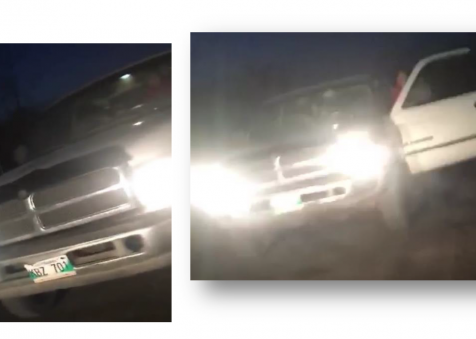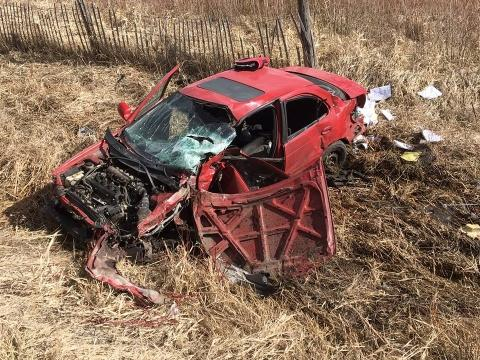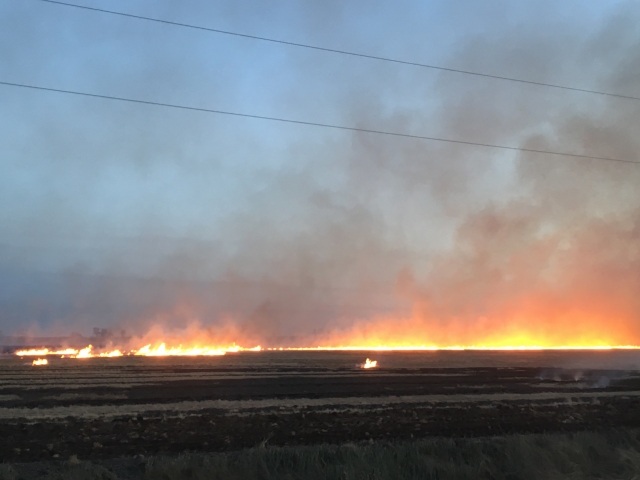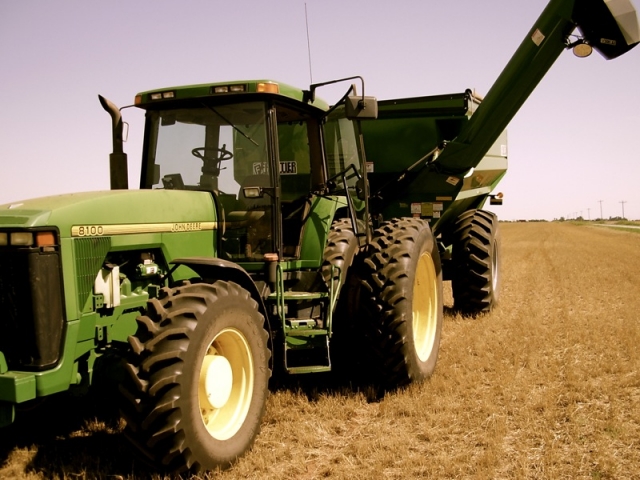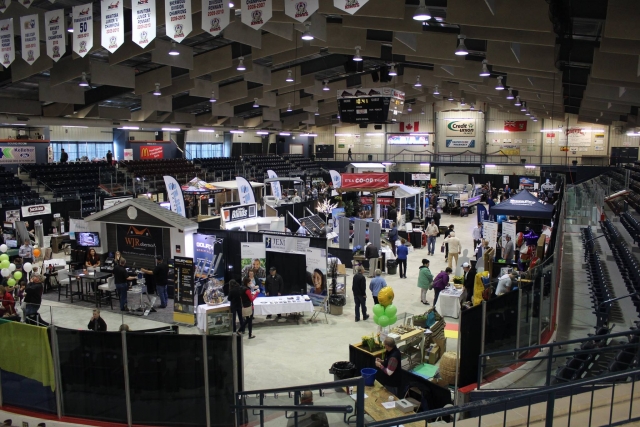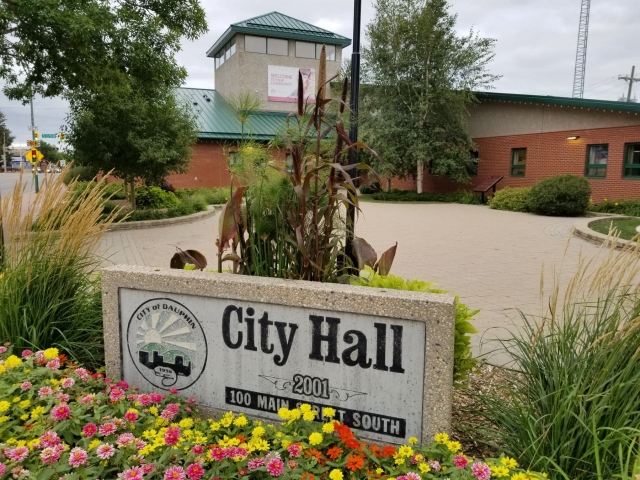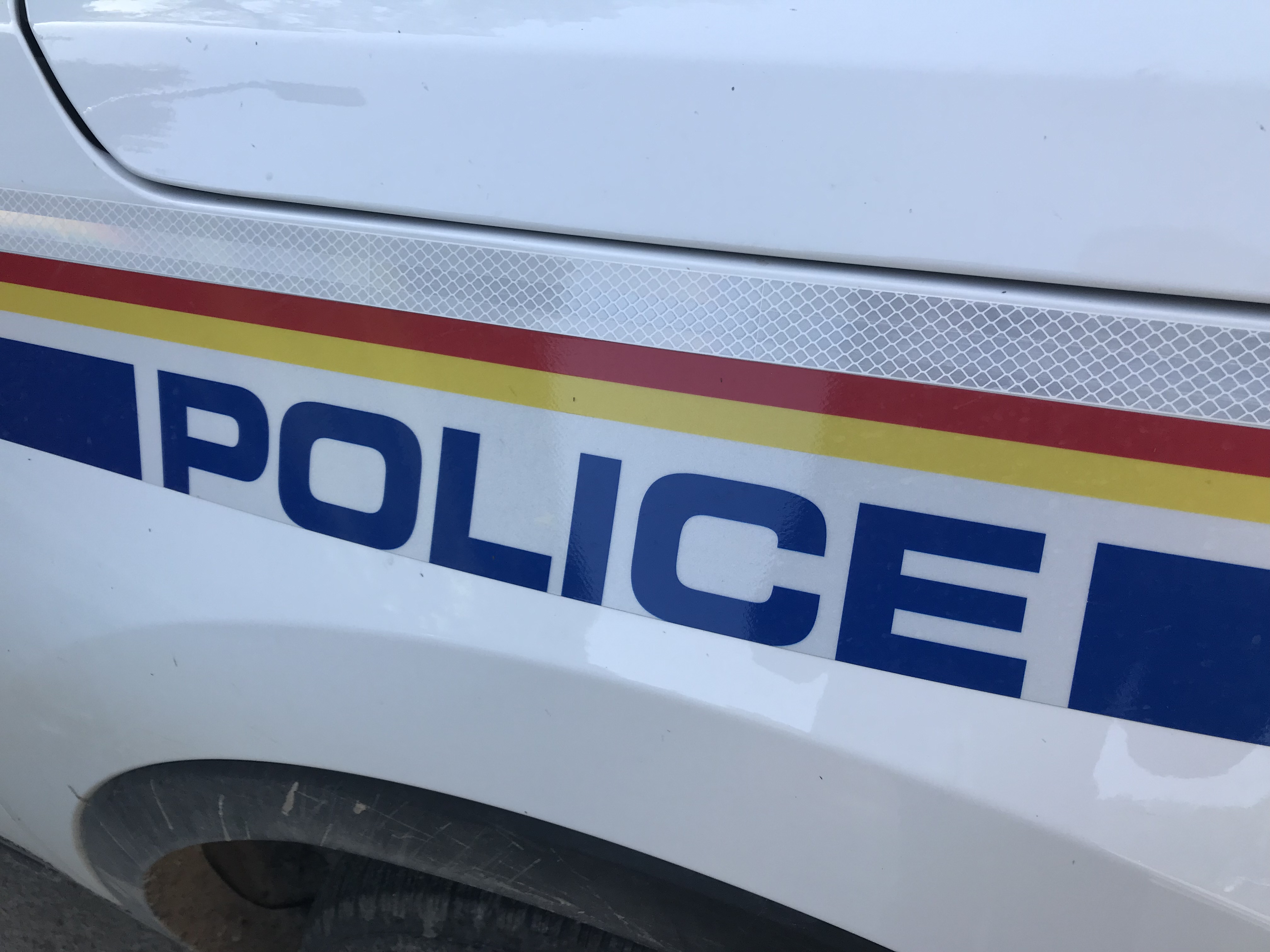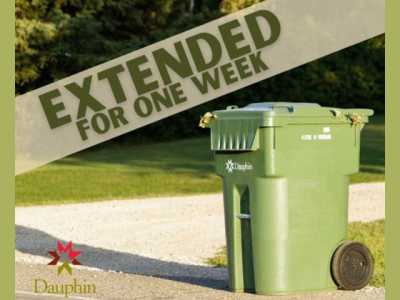 NewsNow
NewsNow
The two missing children from Waywayseeccapo were found safe, but now police are searching for the father who is wanted for a number of criminal charges.
33-year old Robert Fluery is wanted after a pedestrian Hit and Run that took place yesterday.
Police say they were called to a home in Waywayseeccapo and found a 24-year-old female victim who had been struck by a vehicle.
The victim was transported to hospital and remains in stable condition with undetermined injuries.
Fluery, from Gambler First Nation, is wanted for Dangerous Operation of a Motor Vehicle Causing Bodily Harm; Failure to Stop after Accident Resulting in Bodily Harm; Impaired Operation of a Motor Vehicle; Assault with a Weapon; Failure to Provide the Necessaries; Uttering Threats against a person x3 and Failure to Comply with Probation Order.
Police are actively searching for Fluery, who might be driving a white 2000 Dodge Ram 1500 with the licence plate KBZ 701.
Manitoba First Nations Police are asking for the public’s assistance in locating the noted suspect and vehicle.
If you have information on the whereabouts of this suspect are asked to please call MFNP Waywayseeccapo Police Detachment at (204) 859-5071 or Crime Stoppers at 1-(800)-222-TIPS (8477)
Earlier today the police issued a release asking for help in locating a three and four-year-old. Police confirmed later today that both young children have been located and are safe with a family member.
- Details
- Contributed by Josh Sigurdson
A 17-year-old has non-life threatening injuries after his car collided with a train.
It happened in the RM of Springfield Wednesday afternoon, around 4, at an uncontrolled intersection.
Alcohol or drugs do not appear to be factors in the collision.
RCMP along with Canadian Pacific Police Service are continuing to investigate.
- Details
- Contributed by Josh Sigurdson
Canadian farmers anticipate planting more wheat, corn, dry peas and oats this year compared to 2018.
But Statistics Canada says seeding intentions for canola, soybeans and lentils for this year have declined.
The decline in planting intentions may have been influenced by lower prices for some crops due to global supply, tariffs and ongoing foreign trade issues.
The data on actual seeded area which is scheduled to be released in June may differ from current intentions depending on these and other factors, including weather or natural disasters such as flooding.
Given the intention of farmers to plant a greater area of wheat, corn, and dry field peas, there is an expected increase in seeded area for grains, pulse and special crops.
This is the second year in a row that farmers are expected to plant less soybeans, which will cause the area to be at its smallest since 2015.
- Details
- Contributed by Josh Sigurdson
Effective immediately, the RM of Alonsa has implemented a fire ban.
All burning has been banned to prevent wildfires.
Alonsa thanks those affected for their cooperation.
- Details
- Contributed by Isaac Wihak
Being prepared before you start seeding is critical to avoiding risk and potential fines.
The Manitoba Farm Safety Program identified ways people can ensure their success.
- Train your help
All farms in Manitoba are required by law to provide, and keep records of safety orientation for all workers - paid or unpaid, causal or otherwise. In the event of Workplace Safety and Health carrying out a general inspection or investigating a serious injury or fatality on your farm, they can ask to see these training records.
- Know when escort vehicles and permits are required on provincial highways
Permits:
Overwidth permits are not required for any implements or farm tractors being operated or towed on a highway for agricultural purposes. However, height and length permits are required if exceeding the following:
- Height: 4.6 metres
- Length: 35.0 metres
Implements and farm tractors loaded on standard trailers must obtain overwidth permits if the load exceeds 6.1 metres in width. However, specialized trailers designed specifically to haul that particular implement do not require overwidth permits. Height and length permit restrictions still apply.
Escort vehicles:
Escort vehicles are not required for any implements or farm tractors being operated or towed on a highway for agricultural purposes.
If loaded on a trailer, an escort vehicle is required for loads up to 6.1 metres in width that protrude over the centre line of the highway and are subject to the following:
- One front escort vehicle on a 2 or 4 lane non-divided highway
- One rear escort vehicle on a 4 lane divided highway
All trailer loads exceeding 6.1 metres in width require one front and one rear escort on all highways.
The above is a partial summary of the provincial regulation, and does not include information regarding night time travel. For more information about permits and escort vehicles, contact the Manitoba Permit Services Office at 204-945-3961.
- Create or update descriptions of your farmland
Keep descriptions of, and directions to all farmland in the house, in the shop, in your equipment and in farm vehicles. This information should be easily accessible to family, neighbours and workers so they know exactly where to send help if needed.
- Restock and buy personal first aid kits
As per Manitoba safety and health legislation, you are responsible for ensuring that anyone working alone on your farm have immediate access to a personal first aid kit. It may be helpful to keep kits and farmland descriptions in the same spot in your farm equipment. Personal first aid kits must contain the following items:
- a) 10 sterile adhesive dressings, assorted sizes, individually packaged;
- b) 5 10 cm × 10 cm sterile gauze pads, individually packaged;
- c) a 10 cm × 10 cm sterile compress dressing, with ties;
- d) 5 antiseptic cleansing towelettes, individually packaged;
- e) a cotton triangular bandage;
- f) a waterproof waste bag;
- g) a pair of impervious disposable gloves;
- h) a roll of 2.5 cm adhesive bandage tape.
- Let other motorists decide when it is safe to pass you on roadways
While you may want to be polite and pull over to let cars pass you, it is not always a good idea to wave them around. By allowing motorists to decide for themselves when it is safe to pass, it takes the responsibility off you.
- Inspect and replace fire extinguishers
The following is a guideline for the type of fire extinguisher needed for each location on your farm:
Shops
- · 10 pound dry chemical, multi-purpose ABC extinguisher
- · 5 pound dry chemical ABC extinguisher
Barns
- · 10 pound dry chemical, multi-purpose ABC extinguisher
- · 2.5 gallon pressurized water extinguisher
Farm Vehicles
- · 5 pound dry chemical, multi-purpose ABC extinguisher
Combines
- · 10 pound dry chemical, multi-purpose ABC extinguisher
- · 2.5 gallon pressurized water extinguisher
Balers
- · 2.5 gallon pressurized water extinguisher
Tractors
- · 10 pound dry chemical, multi-purpose ABC extinguisher
Silos/Bins
- · 20 pound dry chemical, multi-purpose ABC extinguisher
- · 2.5 gallon pressurized water extinguisher
Remember, fight small fires only. Water extinguishers can only be used on crop, straw and grass-type fires. For any fire involving oil, grease or electrical a dry chemical extinguisher must be used.
On machinery, fire extinguishers should be mounted on the outside if possible.
- Inspect personal protective equipment
Replace any faulty or worn out personal protective equipment. Damaged safety harnesses and lanyards must be cut up prior to being disposed of, so if found, they cannot be used. Things to check for are distorted or broken D-rings, frayed or cut edges in the webbing, bent or rusty buckles and missing rivets.
- Polish up reflective signs and lights on your equipment
Inspect and clean off all lights and signage. Make sure turn signals and flashers work properly and that your safety reflective tape and slow-moving vehicle emblems are fully visible to other motorists.
- Support hydraulics during maintenance
Ensure you are using a second support system on machines that use hydraulics while performing maintenance. Two safety measures should be standard practice.
10. Don’t skip meals
Along with sleep, proper meals and getting plenty of water is key to reducing accidents by maintaining energy levels and alertness. Sleep deprivation and malnutrition slows response time, and that is when things can go wrong.
- Details
- Contributed by Josh Sigurdson
Gas prices have continued to rise after the carbon tax came into effect.
Ernie Sirski is a producer west of Dauphin and he says the biggest thing that happens is an increased cost in their inputs and exports because they are exempt from the carbon tax.
“That doesn’t mean we aren’t going to be affected on the transportation of fuel, fertilizer, and exporting of their products. So it will have an impact, it remains to be seen how severe it’ll be, but there’s no doubt there will be some impact.”
Don Tarrant, general manager of Reit Syd Equipment says gas prices are a small part of the whole picture for producers.
“An increase in fuel certainly impacts the bottom line. Unfortunately, the bottom lines are pretty slim so any increase does hurt the net of the producer.”
Sirski says he doesn’t make cuts in his production to combat gas prices.
“Let’s face it, as a price taker when it comes to fuel, we, in all honesty, have to suck it up and deal with it, especially with oil prices.”
Tarrant says companies are working to make farm equipment more fuel efficient like cars.
“New equipment in the last 5 or 10 years has become more fuel efficient. The equipment will do more work per acre with a lot less fuel. As well, the fuel burn is a lot cleaner than it’s ever been.”
Sirski says he keeps an eye on the pumps more than he does on his own production.
He adds that he’s been a minimum till farmer for about 20 years and there isn’t much he can do to make the gas price impact less on him.
“The reality is that fuel is the cost of doing business. I don’t know what else we can do on our own farm to actually reduce fuel usage. We think we’re fairly efficient as it is so other than what we are doing there isn’t much else we can do.”
Overall farmers aren’t pleased with gas prices. Tarrant says the rising gas prices and declining canola, wheat, and soybean prices are causing problems.
- Details
- Contributed by Isaac Wihak
Today is the 39th Annual International yellow T-Shirt Day!
“Some friends and I started it in High School for a bit of fun, and we kept promoting it year after year by sending out press releases. Our peak year was 1984, when over 1200 radio stations around the world were running interviews with me, as well as newspapers and daytime television talk shows. It was pretty crazy!”
René Hübener, known as the Parkland Poet, says he and his friends have kept it alive by still doing annual interviews with a few media outlets, but plan on doing a much bigger push next year when Yellow T-Shirt Day turns 40.
How do you celebrate?
“It’s easy…. Just wear something Yellow! And if you like, you can post a picture of yourself at International Yellow T-Shirt Day on Facebook!”
You can find out more by clicking here.
- Details
- Contributed by Josh Sigurdson
Dauphin Kinsmen Business Expo is sold out this year which means there's lots for visitors to see.
Dan Pylypchuk says they had to divide the bigger booths into smaller spaces to let everyone who wanted a spot in.
“A lot of smaller companies are coming on board and just wanting to showcase at our expo,” said Dan.
This year many businesses are coming back after taking a hiatus for a few years.
“We did reach out to businesses that we wouldn’t think would go in this year, and there are actually some that weren’t in for the last few years that went in this year,” said Dustin Pylypchuk.
The entertainment this year is also worth checking out. “We’ve got a full stage this year,” said Dan. On the lineup they have magic shows and princess parties ready to entertain.
Dustin recommends trying out the Plinko board as they have a lot of great prizes. They also have the favourite meat draw. “The freezer is a seven cubic freezer, apartment size and it’s being donated by Ruffs. Then we’re doing a 600 dollar gift card to Showdra's because who knows if people want to have steaks, bacon, or jerky and all that.”
The expo is taking up the entire Dauphin Rec Centre this Saturday and Sunday.
- Details
- Contributed by Josh Sigurdson
The City of Dauphin's insurance policy is going up by 12 per cent.
That might seem like a lot, but that's after premiums were negotiated down from 50 per cent.
The insurance underwriters wanted increases because they saw greater chances of municipalities needing to file claims.
“They noted that we are at a greater risk and one of the bigger reasons is climate change. Larger climate events that are happening and we own a lot of infrastructure and they wanted to increase our premiums to be able to cover that risk,” said City Manager Sharla Griffiths.
The AMM agreed to contribute more money to the loss pool as a way they were able to lessen the increase.
In the city manager report Griffiths explains how the system works.
“It is a unique program that combines a traditional insurance policy concept with a “loss pool” concept. Basically, from the premiums invoiced to municipalities, some money is deposited into the loss pool (administered by Western Financial Group) and some money contributes to the traditional insurance policy. A set amount of money in the loss pool is dedicated to be used for claims each year; if there are more claims than funds available then the traditional insurance policy is utilized, but if there are less claims than funds available then the participating municipalities get rebates.”
The insurance premium runs around 350 thousand dollars for the city. Griffiths says over the entire budget that's a comparatively small amount.
“So a 12 per cent increase in that amount did not have to result in a tax increase to cover that.”
Griffiths says that 12 per cent is still a big number considering that most of their increases are one to two per cent.
The city's insurance policy covers everything they own. That includes city hall, the shop, the water treatment plant. It also includes anything run through the rec services like parks or the rec centre.
- Details
- Contributed by Josh Sigurdson
The RM of Dauphin’s 2019 financial plan has been released.
Nicole Chychota, CAO for the RM of Dauphin, says not a lot changed from last year’s budget.
“For the most part, the budget we have this year is very status quo.”
The tax rate increase is up to a mill of 22.408 which is an increase of 2.28%.
RM residents shouldn’t worry about any cuts.
She says it’s hard to say if the budget is up or down because some parts of the budget have been reduced whereas others have had increases.
Chychota says the province has made a change that RM residents should be aware of.
“There are changes to the education property tax credit. So the province eliminated the ability for residents to use any unused portion of that credit against their municipal taxes owing. So, residents that pay less than 700 dollars in school tax will see a bit of a larger increase to their tax bill than others, just because of that provincial change.”
Chychota believes everything is moving in the right direction and they are focusing on getting to the point where they don’t need to rely on the reserves as much for expenditures.
- Details
- Contributed by Isaac Wihak
Yesterday evening, Fisher Branch RCMP responded to a fatal vehicle-pedestrian collision on Peguis First Nation.
The investigation determined a truck being driven by a 46-year-old woman struck a 42-year-old female walking on the highway. Both are from Peguis.
The driver stopped and stayed at the scene.
Fisher Branch RCMP and a forensic collision reconstructionist continue the investigation.
- Details
- Contributed by Isaac Wihak

